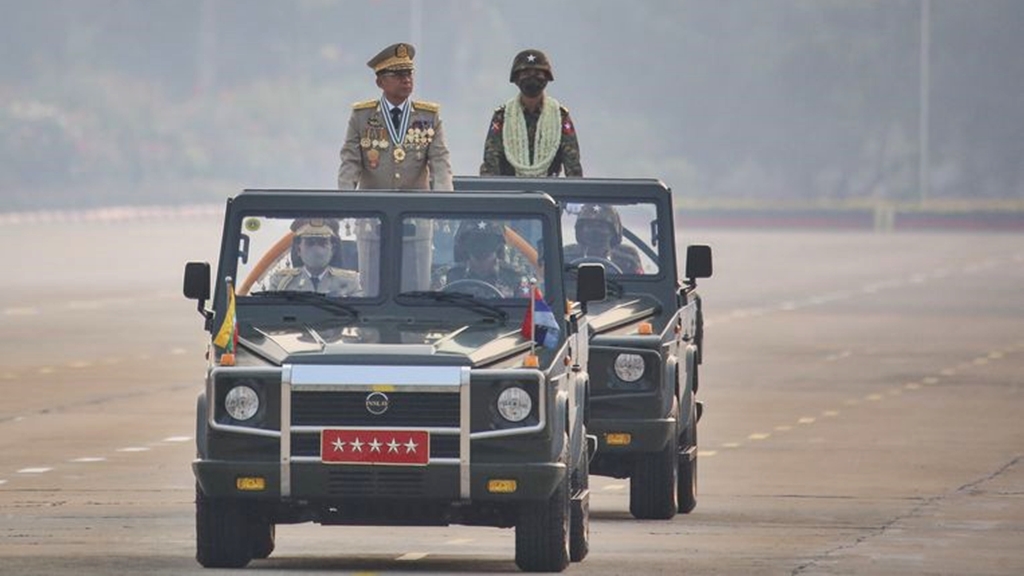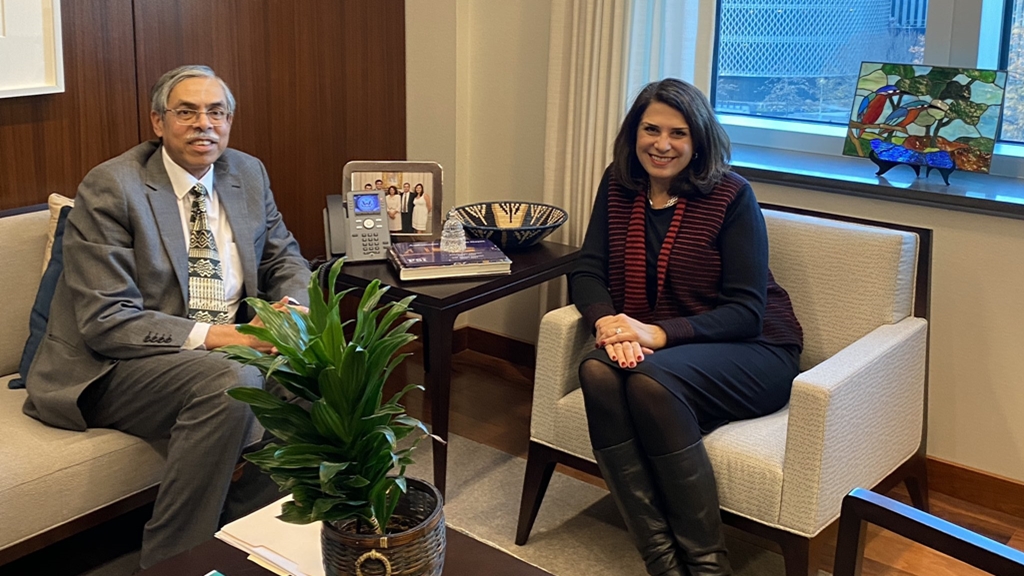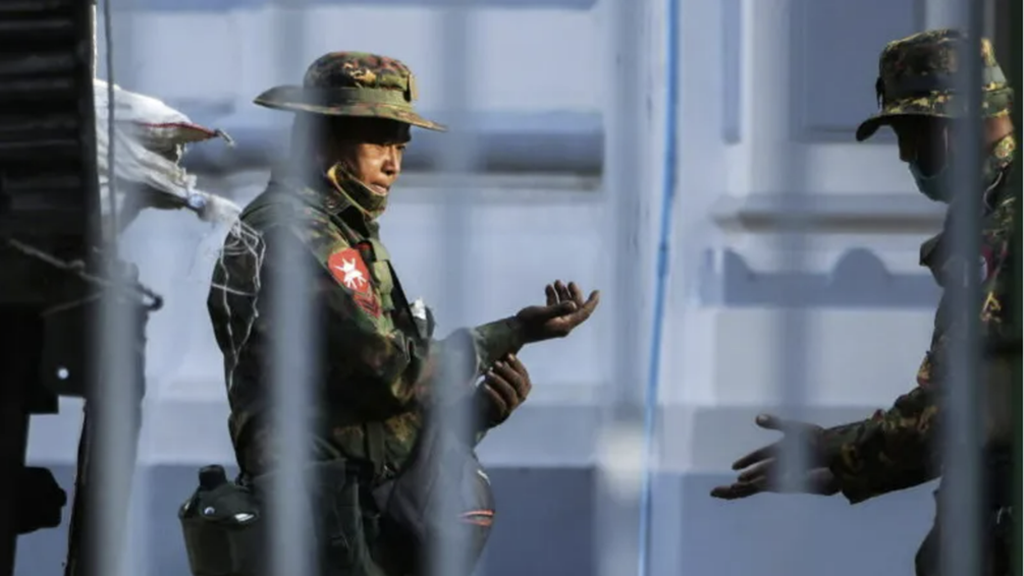
A Day of Shame and Mass Murder in Myanmar
- 29/03/2021
- 0
By Aman Ullah
March 27 is a red-letter day from 1945, a turning point on Burma’s road to freedom. In the final days of World War II, as the Allied forces closed in, the Burma National Army switched sides that day and turned against the Imperial Japanese Army to lead the underground Anti-Fascist People’s Freedom League. On 27 March 1945 the Burma National Army rose up in a countrywide rebellion against the Japanese. 27 March had been celebrated as ‘Resistance Day or Revolution Day’ until the military renamed it ‘Tatmadaw (Armed Forces) Day’.
However, this year on this day, the coup leader Min Aung Hlaing and his generals celebrated it massacring own peoples. The Myanmar military junta killed 114 people, including many children. The killings came as protestors in Yangon, Mandalay and other cities took to the streets demanding restoration of democracy in the country following the infamous coup of February 1. Since the coup, more than 440 were killed by the military personal.
The bloodshed drew renewed Western condemnation. The UN Special Rapporteur for Myanmar said the army was carrying out “mass murder” and called on the world to isolate the junta and halt its access to weapons.
Foreign criticism and sanctions imposed by some Western nations have failed so far to sway the military leaders, as have almost daily protests around the country since the junta took power and detained elected leader Aung San Suu Kyi.
Heavy fighting has also erupted between the army and the ethnic armed groups that control swathes of the country.
About 3,000 villagers from southeastern Karen state fled to Thailand yesterday following air attacks by the army on an area held by an ethnic armed group, an activist group and local media said.
Myanmar’s military launched air strikes on five areas in Mutraw district, near the border, including a displacement camp, the Karen Women’s Organization said.
“At the moment, villagers are hiding in the jungle as more than 3,000 crossed to Thailand to take refuge,” a statement from the group said.
Countries including the United States, Britain and the European Union strongly condemned the violence.
UN Special Rapporteur Tom Andrews said it was time for the world to take action – if not through the UN Security Council then through an international emergency summit. He said the junta should be cut off from funding, such as oil and gas revenues, and from access to weapons.
“Words of condemnation or concern are frankly ringing hollow to the people of Myanmar while the military junta commits mass murder against them,” he said in a statement.
The top military officer from the United States and nearly a dozen of his counterparts said in a statement that a professional military must follow international standards for conduct “and is responsible for protecting – not harming – the people it serves”.
The military took power saying that November elections won by Suu Kyi’s party were fraudulent, an assertion dismissed by the country’s election commission. Suu Kyi remains in detention at an undisclosed location and many other figures in her party are also in custody.
The killing of the protesters on the country’s Armed Forces Day and with foreign delegates from Russia, China, India, Pakistan, Bangladesh, Vietnam, Laos and Thailand, visiting Myanmar to mark the parade, is a reflection of the belligerent ruthlessness of the Myanmar military. Dr Sa Sa of Committee Representing Pyidaungsu Hluttaw, called it a “a day of shame for the armed forces”.
It is worth noting here that the use of lethal force by state security forces against a civilian is only lawful when necessary to prevent loss of life and serious injury and when proportionate to the threat at hand. The U.N. Basic Principles on the Use of Force and Firearms by Law Enforcement Officials stipulates that the “intentional lethal use of firearms may only be made when strictly unavoidable in order to protect life.” The U.N. Code of Conduct for Law Enforcement Officials requires officials to “use force only when strictly necessary and to the extent required for the performance of their duty.”
In situations of armed conflict, Article 42 of the Third Geneva Convention stipulates that the use of force “against those who are escaping or attempting to escape, shall constitute an extreme measure, which shall always be preceded by warnings appropriate to the circumstances.”
In all situations, under international humanitarian and human rights law, the authorities have a responsibility to protect civilians. But now, instead of protecting the civilians, the authority by itself conducting the act of extra-judicial killings, arbitrary arrests, and raids on civilians’ homes indiscriminately, which are tantamount to acts the of terrorism, state terrorism. State terrorism refers to act of terrorism conducted by a state against foreign targets or its own people. These are terror employed by tyrants against their subjects as Aristotle once wrote.
On 27th March 1945, General Aung San ordered his troops start to attack nearest enemy, i.e., the fascist Japanese. But on this 27th March 2021, the coup leader Min Aung Hlaing ordered his troops to attack all nearest civilian those who oppose their illegal coup.
The Myanmar military has over the decades repressed its people and persecuted the minorities. Even during the regime of a civilian government, the Rohingya community could not be protected from the wrath of the country’s military. The brutality of the Myanmar junta must be brought to an end for an inclusive and thriving Myanmar and a peaceful, prosperous region.
Kofi Annan, former UN Secretary- General, in a UN press conference of 2009, stated that, “time to set aside debates on so-called ‘state terrorism’. The use of force by states is already regulated under international law”. “…regardless of the differences between governments on the question of definition of terrorism, what is clear and what we can all agree on is any deliberate attack on innocent civilians [or non-combatants], regardless of one’s cause, is unacceptable and fits into the definition of terrorism.”
However, at present, the gang of Min Aung Hlaing is not a legal state institution rather it is an illegal organization who are attacking and killing the innocent civilian peaceful protesters.
UN Special Adviser on the Prevention of Genocide Alice Wairimu Nderitu and UN High Commissioner for Human Rights, Michelle Bachelet called the killings “shameful, cowardly, brutal actions of the military and police, who have been filmed shooting at protesters as they flee, and who have not even spared young children”.








